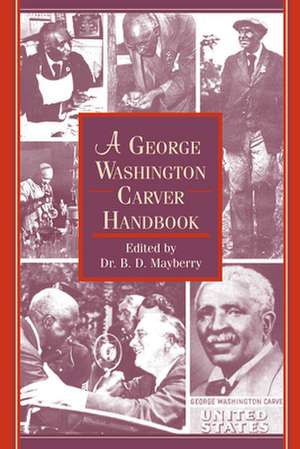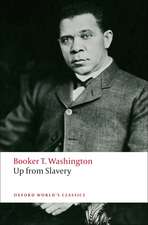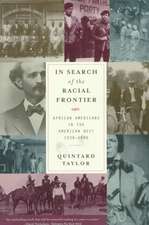A George Washington Carver Handbook
Editat de B. D. Mayberryen Limba Engleză Paperback – 31 ian 2007
Preț: 82.26 lei
Nou
Puncte Express: 123
Preț estimativ în valută:
15.75€ • 17.11$ • 13.23£
15.75€ • 17.11$ • 13.23£
Carte disponibilă
Livrare economică 31 martie-14 aprilie
Preluare comenzi: 021 569.72.76
Specificații
ISBN-13: 9781603060165
ISBN-10: 1603060162
Pagini: 90
Dimensiuni: 152 x 229 x 6 mm
Greutate: 0.15 kg
Ediția:2
Editura: NEWSOUTH INC
ISBN-10: 1603060162
Pagini: 90
Dimensiuni: 152 x 229 x 6 mm
Greutate: 0.15 kg
Ediția:2
Editura: NEWSOUTH INC
Notă biografică
Dr. B. D. (Bennie Douglas) Mayberry, a native Alabamian, graduated from Tuskegee Institute in 1937. Although George Washington Carver had officially retired by then, he would lecture from time to time as a guest of other professors and Mayberry considered it a pleasure and a privilige to be Carver's student.
Following his graduation with a Bachelor of Science degree, Mayberry made a name for himself as an innovative researcher and dynamic teacher at universities throughout the southeast. He began his graduate studies at Michigan State University in 1947, earning a master's degree as well as a Ph.D. in horticulture. When Mayberry became an instructor in the Horticulture Department at Michigan State, he was the first African American hired by the College of Agriculture. However, when Mayberry decided to purchase a home for his family in East Lansing, no real estate agent would sell to an African American. He decided to return to Tuskegee as the head of horticulture.
Mayberry was active in teaching, research, and administration at Tuskegee for more than thirty years, from 1950 until his retirement in 1981. He diligently pursued state and federal funding for the land grant universities (including Tuskegee) that the Morrill Act had established in 1890 to serve African Americans. Among many other noteworthy contributions, Mayberry also led the effort to establish Tuskegee's pre-forestry program and secured the funding that established the Macon County Community Action Program and the Tuskegee Model Cities Project.
Following his graduation with a Bachelor of Science degree, Mayberry made a name for himself as an innovative researcher and dynamic teacher at universities throughout the southeast. He began his graduate studies at Michigan State University in 1947, earning a master's degree as well as a Ph.D. in horticulture. When Mayberry became an instructor in the Horticulture Department at Michigan State, he was the first African American hired by the College of Agriculture. However, when Mayberry decided to purchase a home for his family in East Lansing, no real estate agent would sell to an African American. He decided to return to Tuskegee as the head of horticulture.
Mayberry was active in teaching, research, and administration at Tuskegee for more than thirty years, from 1950 until his retirement in 1981. He diligently pursued state and federal funding for the land grant universities (including Tuskegee) that the Morrill Act had established in 1890 to serve African Americans. Among many other noteworthy contributions, Mayberry also led the effort to establish Tuskegee's pre-forestry program and secured the funding that established the Macon County Community Action Program and the Tuskegee Model Cities Project.

















